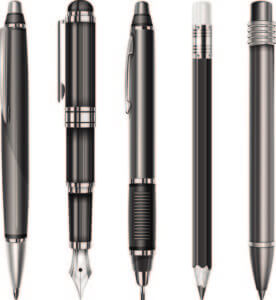
My goodness, just look at you! You’re positively radiant, glowing even. It’s undoubtedly been a long, trying few months, but here you are on the cusp of landing your first gig in the production world as a production assistant (or PA, for short). It’s an exciting time, albeit a trying one. At ECG, we pride ourselves on our dedication to fostering the growth and maturation of our new interns and PAs, helping them along their way to full-blown professionalism. By following a few easy pointers that we instill in all our new recruits, you can ace your first PA job with flying colors, while making a lasting impression on the crew at the same time (something that simply cannot be overvalued enough in this industry). So, what can you do to kick-ass in your first role on a real set?
1) Know what you’re getting into
As it is with any endeavor–from having to bathe your cat, to trying to explain “the cloud” to your parents, to the slightly less laborious task of your first major PA job–it is important to know what you’re getting into before you dive in headfirst. A PA’s job isn’t always pretty, and it’s certainly a far cry from your dream job of directing the next J.J. Abrams-produced, lens flare-heavy, blockbuster, but it’s an integral one that no production can live without.
When you are a PA, it is your job to do anything and everything to make sure that the shoot is running smoothly and on time, to be a well-oiled cog in the machine of the production. Sometimes, “anything and everything” can mean making sure that walkies are distributed to everyone in the crew; sometimes “anything and everything” can mean jumping in with the art team to help speed up a bit of set design; sometimes “anything and everything” can mean picking up garbage or making a coffee run. Each shoot is a totally different animal, so just be ready to tame it in whatever way is asked of you, and know that your responsibilities are myriad.
2) Be ready with the tools of the trade
Unlike most of the other departments of the production team, many of whom have to schlep gear to-and-from set, PAs generally don’t have to bring a lot with them to the shooting location. That said, once you get to set, that doesn’t necessarily mean you won’t be the one loading and unloading the gear for the other departments, but I digress…

What you should have with you, however, is a small number of items that can and will set you apart from the other PAs. Pens, for instance: you can never have enough pens. In the controlled chaos of a set, you never know when a producer or crew member will need to jot something down or mark a measurement. Now, just imagine that scenario, the crew member scrambling for something to write with, and you coolly sliding them a pen to use. You’ll look so smooth, you might as well brush your shoulder off as you walk away. Also, having a pocket knife can be quite the lifesaver. Besides all of its usual helpfulness, you’ll never truly know the importance of having a pocket knife on you until you are asked to cut layout board or open boxes on the fly by the production manager. There is no fresher hell than having to do this with your bare hands, I assure you.
Lastly, and this seems like an intuitive one, but wearing a belt is almost a MUST when you’re on set. More likely than not, you’ll be communicating with your team by walkie–pretty much standard operating procedure, right? Well, if you try going a whole day with a walkie latched to, say, some basketball shorts, or perhaps some looser cargo shorts, you’ll spend more time trying to hold your pants up than flying around to help the crew. Generally not a great look, especially on your first set. So make sure you keep those pants buckled up and ready to carry the weight of a walkie on your waistline.
3) Always be moving and helping out
One of the biggest mistakes you can make when you’re a PA is thinking that there isn’t something on set that needs to be done. Production is oftentimes a hurry up and wait kind of affair. Between moments of chaotic scrambling to set up the next shot or expedite a company move, you might have seemingly interminable periods where there simply isn’t a whole lot for a PA to do. Only–you guessed it–there actually is work to be done!
Use this time to do the small things and set yourself up for an easier wrap later on in the day. Do things like collecting garbage, consolidate production equipment and gear, and make sure that anyone else who has down time can fill out their paperwork. Also, if it seems like you’re in a bit of a lull, that usually means that other departments are hard at work on a task of their own. If you’ve finished all your other tasks, offer to jump in and help any way you can. Lastly, always ask your supervisor (usually the Production Coordinator or Manager) if there’s anything else they need. Being remembered as the proactive and exceedingly helpful PA is never a bad thing, young padawan.
4) Always have a positive and uplifting attitude
Above all else, the best way to make your mark on a production when you first start out as a PA is to simply have a smile on your face and a willingness to help out at every turn. People in any industry, but particularly in the production world, love to work with people they get along with. When the rest of the crew looks back on the production, make sure they remember you as the smiling, excited PA who was everywhere and always looking to help out. Building this kind of rapport will lead to more jobs, which will lead to more experience, which lead you one step closer to that directing gig you’ve always wanted. Still some ways away, but every step counts, right?

